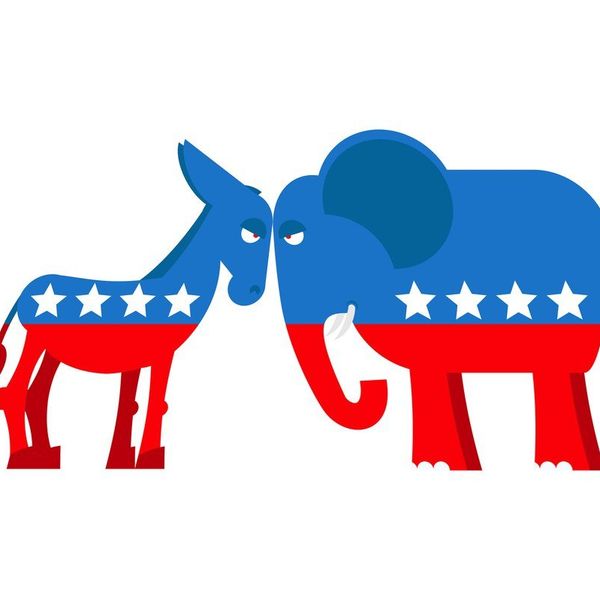Bipartisanism adds fuel to one of the most formidable threats facing America today. It is a wildfire fuming with hatred, bigotry and violence. It is an iron fist which thrusts down, forcibly splitting America in two. It is the great divider of people. Bipartisanism is a harbinger of America's collapse unless the people stand together and unite for change and peace.
The problem in politics lies in choosing sides—not just choosing sides, but being committed to a side. "Do I register Republican or Democrat?" is the question Americans face come election season. To be quite honest, many people probably never ask this question. Rather, we as humans assimilate into a political culture. Someone may commit to being Democrat or Republican because they were born into a political family. Others may do a great deal of thinking and researching before choosing sides. But no matter how you became politically committed, at the heart of commitment lies irrationality and sentiment, not reason.
It's important to understand that in politics, there are no right or wrong answers. Nobody really knows how best to rule or how best to legislate. There is no mathematical formula to give us absolute answers in politics. Of course, we can learn from the past. We can learn from the great wisdom of political thinkers throughout history. But each historical moment is its own, well... moment. The past cannot dictate what we ought to do in the present, it can only guide us.
So, does it make sense to be politically committed? To be committed, I think, is to dismantle and disparage the merits of the other side. And if you think the other side has no merits, you'd be hard-pressed for an argument. Great things have happened because of the strive of those on both poles of the political divide.
We, as rational believers, or at least intelligent believers, should be moderately inclined. In other words, we shouldn't throw all our chips on one bet. We should be modest because, at best, we can only ever be partially right. And when it comes to politics, there are good arguments on both sides.
For me—and I think many in America share the same sentiment—bipartisan politics often does not represent the views of sophisticated, moderate thinkers. This, I believe, is the reason for the relatively low voter turnout in America—that and the primacy of the electoral college.
You really only have two voting options—Republican or Democrat. A vote for anything else is essentially no vote at all. Part of the problem lies in media coverage. We hear virtually nothing about the Libertarian Party, the Green Party, or the Constitution Party, and just in this last election did we get to learn more about American socialism through the running of Bernie Sanders. It's essential that Americans learn more about diversity in politics. True democracy represents and appreciates diversity.
By recognizing the virtues of various different political outlooks, we will come to understand that the beliefs (not just political) we are committed to aren't the only ones to be accepted by a community of rational believers. In other words, we should be more open-minded and hear the other side. True wisdom lies not in the ability to speak and believe, but in the ability to listen and learn.



















